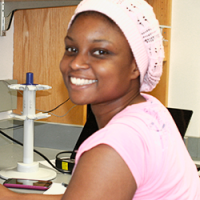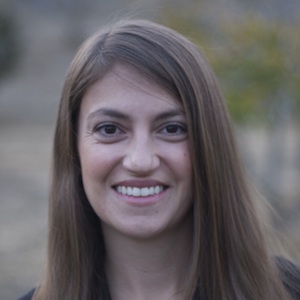Nicole Creanza, assistant professor of biological sciences and member of the Evolutionary Studies Initiative, and graduate student Kerri-Ann Anderson have developed a new mathematical model that represents vaccine hesitancy as a belief that can influence, but not perfectly predict, whether parents will decide to vaccinate their children. The cultural evolution–based model will help researchers better understand and study the important problem of vaccine hesitancy, which can lead to illness and death from vaccine-preventable diseases.


The model centers around the transmission of cultural beliefs and behaviors that influence the spread of disease, with insights from public health and epidemiology. The study represents a divergence from traditional modeling, which focuses on solely epidemiology, or the incidence, distribution and control of diseases.
In the paper, “A cultural evolutionary model of the interaction between parental beliefs and behaviors, with applications to vaccine hesitancy” published in the journal Theoretical Population Biology in June, Creanza and lead author Anderson articulate that transmission of vaccine-hesitant beliefs is a key predictor of the level of vaccination coverage and disease risk. Their study also found that vaccination coverage decreased sharply when vaccine-hesitant people preferentially interacted with one another.
“With this model, I was particularly interested in being able to simulate circumstances under which a decoupling of beliefs and behaviors occur, for example high vaccination coverage in a vaccine-hesitant environment. Vaccine hesitancy is often conflated with vaccine refusal, but peoples’ beliefs do not always match their behaviors, and these scenarios are not well studied,” Anderson said.
Despite vaccines being a safe and effective way to combat illness and mortality, vaccine hesitancy—the reluctance or refusal to vaccinate despite the availability of vaccines—is a long-standing public health concern. The World Health Organization deemed vaccine hesitancy among the 10 greatest threats to global health in 2019 (before the COVID-19 pandemic). Though the safety of childhood vaccines is well studied, far less is known about how parents’ vaccine-related beliefs affect their decisions to vaccinate their children.
“One thing that I find fascinating about this model is that, with everything else being equal, the degree to which vaccine-hesitant individuals preferentially interact with one another has a large effect on the vaccine coverage in the population,” Creanza said. “If people who are vaccine hesitant seek out an ‘echo chamber,’ we find greater numbers of unvaccinated children. Misinformation can often spread faster than accurate information, so the verified information should be easy to access and clearly written for people who seek it. This is a good reminder how important it is for everyone to have access to reliable scientific information and to seek out dialogue, even with people we disagree with.”
The Creanza lab’s next study will use a cultural evolution perspective to model how people react to the introduction of a novel vaccine, such as those for COVID-19. Whereas this study focused on established childhood vaccines where the long-term effects of the vaccine are well understood, beliefs around a new vaccine may be entirely different.
